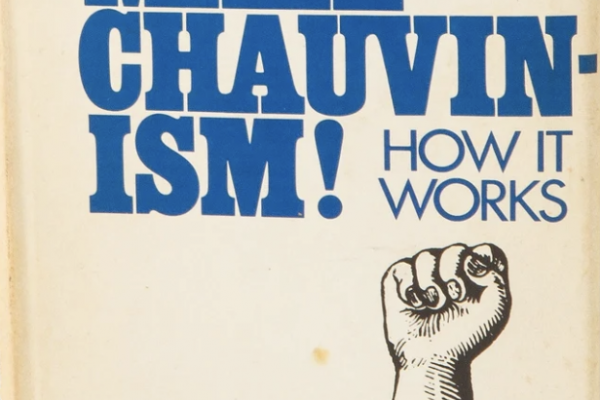Original Publication: New York Woman – September, 1989.
I lost my virginity not too long ago. Dialing for dollars, so to speak. I raised my first $5,000 for a dinner I cochaired in Washington, D.C., for the National Council of Returned Peace Corps Volunteers. Fundraising is not a job for the subtle or faint of heart. In my best Jerry Lewis telethon manner, I called the chief lobbyist of a major company whom I had introduced to the woman he is going to marry. “How much do you want?” he asked. “How much is it worth to you that I introduced you to Margo?” I replied. And then I told him I would make sure Margo knew about this test. Thank god she turned out to be worth a table.
In the business of begging, which is what fundraising comes down to, it doesn’t take long to realized why social climbers get strung out or why these accomplished society dames have to get their blood changed in Switzerland when the season’s over. Fundraising is tough and exacting work that often is undervalued because it involves volunteer labor. Nonetheless, in an era of government cutbacks on social safety-net issues and in the arts, fundraisers can make the difference between life and death for those many institutions whose names do not begin with the word metropolitan.
Naturally, in New York there is often wretched excess in the name of charity; $1,000 tickets are commonplace and even $1 million nights, which actually net seven figures, are not considered unusual. (“Sometimes I wonder if people fudge their figures,” muses veteran organizer George Trescher.) Often though, despite these easily maligned folderols, much more than fundraising itself is at stake.
Take AIDS for example. A serious issue that wasn’t being taken nearly seriously enough, the cause was given a great boost from several glittering, highly publicized fundraisers. Not too long ago the currently verysocial New York Public Library was “down the tubes,” says Trescher, until the Literary Lions Awards were created. Now all those society darlings can donate millions, proclaim their love of literature over deductions and rub shoulders with the erudites clanging big medals around their necks. “We have a limit of twenty-one tables at $15,000 per table,” explains Marie Sexton, the library’s manager of public affairs, “and now there’s a virtual waiting list of corporate sponsors.”
In Washington politics, money and fundraisers are so intertwined that some D.C. wealthies have a hard time believing they will ever be invited to a party where they don’t have to leave a check at the door. Asking for money is such a part of life here that a Democratic real estate woman I know (even the real estate brokers in the capital are divided by political affiliation) told me that in the first six months of 1989 she was asked to give more than $100,000 in denominations ranging from $100 to $10,000.
But why bother with all these special events, with juggling ticket sales, corporate sponsors, caterers, florists, printers, press, celebrities and seating? “Clearly it’s cheaper to spend a year hitting up major gift givers than staging an event that you hope raises more than 50 percent of expenses,” says Barbara Israel, the pro behind the biggest AIDS fundraisers. “But a special event puts the organization on the map. You hope the press covers it, but more than any other thing, it helps mobilize the organization itself and makes contact with people never drawn to it before.”
True, true. But to anyone who has ever been responsible for one of these extravaganzas, it also causes raving anxiety. “I have a whole head of gray hair,” says Israel, “and a staff of nine. We’re very controlling.”
“I get sick to my stomach when ticket sales are flat,” adds Trescher. Deep into my own fundraiser, which we hoped would raise $50,000 to help educate people about the virtues of Peace Corps service and the needs of developing countries, I frequently found myself awake at three or four in the morning with a horrible gnawing in the pit of my stomach. Would ex-volunteers – notoriously difficult to organize and ferociously frugal – come to anything that costs $125 a ticket? Somehow in their minds they are still living in the jungle on $60 a month.
“Oh you could have called me,” said Maggie Miller, director of development of the Coro Foundation, when I said I had become a fundraising insomniac. “This time of year I’m always up pacing at 4:00 A.M.” Coro, which sponsors student internships in the public and private sectors, manages to net more than a third of its entire budget from its annual dinner in New York. Says Miller, “I always flash back to the notion of a body count. How many fannies are in paid seats and how many are free freight?”
I had visions of empty chairs and half-filled tables. How could I tell Sargent Shriver that someone who lived alone in a poor Colombian barrio for two years and built a school couldn’t fill a ballroom? “Sarge,” the beloved first director of the Peace Corps and brother-in-law of the Corps founder, President John F. Kennedy, wouldn’t understand. He had told me at our first meeting that he wanted this dinner which would celebrate JFK’s birthday, to make news. (For years the family has preferred that President Kennedy’s birthday and not his death day be commemorated.) Whether you were a Peace Corps volunteer in 1961 or 1989, saying no to Sarge would be like telling George Washington, sorry, you thought you’d skip crossing the Delaware with him.
“Those who succeed are always those who stay on the phone until midnight,” advised Eunice Kennedy Shriver. So I got moving. Caroline and John F. Kennedy, Jr., agreed to sponsor the dinner. Maria Shriver said, yes, she’d MC and introduce her father, as well as the outgoing and incoming Peace Corps directors, both of who are Republicans.
But Republicans are very sensitive where the Kennedys are concerned. “How many tickes are they going to buy?” was the first question put to me by a prominent Republican senator I approached to be one of the dinner’s co-chairs. He wanted a commitment that the Democrats would be good for a least a table. Naturally, I assured him. Then he wanted me to get Arnold Schwarzenegger, Maria’s husband and the staunch Republican of the family, to attend. Alas, Arnold was shooting a movie in Mexico. The senator lost interest.
“You better think about canceling,” my husband told me two weeks before the event, when we had less than 100 tickets sold. That made me so mad I made twenty extra phone calls that day. (“I only told you that so you’d kick a little ass,” he insisted later.)
All too soon I discovered a new problem. “One twenty-five is an odd number. No one gets past my door for less than $250,” one chic Washington fundraiser told me. “These cheap events are usually $100 or $150.” Here I was letting the General Patton side of my nature take hold, prostrating myself, begging for money, allowing my work to slide, my family to fend for themselves and losing sleep, all over a “cheap event.”
But on the night of the dinner all 400 tickets were sold and nothing looked cheap at all. Lauren Hutton flew in from the Galapagos Islands and told a reporter that she often met Peace Corps volunteers on her jungle travels, although she usually “went deeper.” The Washington Post reported in its Style section the next morning that “the Peace Corps acts like one big family, their close relatives being the Kennedys.” Indeed, Caroline Kennedy plunged into the crowd, allowing herself to be patted and pulled, and later made an extremely gracious speech. Maria Shriver brought her father to tears, so funny and tender was her introduction of him. The conservative Washington Times labeled the evening, “The Caroline and Maria Show” and ran a full-length picture of Caroline, squishing a party for GOP Chairman Lee Atwater down to the bottom of the page. Even for the right-wing press there is still magic in Camelot.
I was a nervous wreck all night. First I lost my speech. Then, unfortunately, I found it and had to give it. I received a tongue-lashing from a powerful lawyer who didn’t like his seats, and just when I thought it was safe to sit down to my breast of capon, someone whispered in my ear that the extremely svelte Caroline Kennedy had lost a button and couldn’t go on unless a safety pin was found.
But the worst part was when everyone started talking about how much they looked forward to next year, and boy, was I going to get offers to work on other dinners. That’s what they think. I have now come to regard staging a fundraiser with the same view I have towards marriage: it is something I aspire to only once in life.
This article is typed from the original material. Please excuse any errors that have escaped final proofreading.



